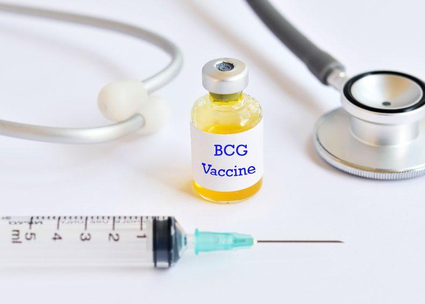|
Written by: Mark Appleman Edited by: Maximilian Bonnici With incidences of bladder cancer rising over the last decade from around 60,000 to 80,000 new cases annually, treatments are in high demand. Of these 80,000, roughly 45% present with high-grade, noninvasive tumors most effectively treated through intravesical immunotherapy with Bacille Calmette-Guérin (BCG), a critical microorganism which prompts the immune system to attack bladder cancer cells [1]. Over the past year, a nationwide BCG shortage has led to heavy rationing and has prompted clinics across the board to use less-effective alternatives for all but those with high-risk Non-Muscle Invasive Bladder Cancer (NMIBC) [2]. Following the 2017 departure from the market of Sanofi, one of only two FDA regulated US manufacturers of BCG, the pressure fell entirely on the remaining supplier, Merck, and its TICE strain BCG to cope with the ever-growing demand. As the only source of BCG live (intravesical) in the United States, Merck increased production of TICE BCG by more than 100%, to the full extent of its manufacturing capacity, recognizing that it has been a standard of care for many patients with NMIBC for decades [3]. Merck’s explanation for the shortage involves barriers associated with expanding a massive production facility to increase the output of a microorganism—not a molecule—which takes roughly three months a batch to grow. Despite putting worker shifts around the clock, ramping up production still took the predicted 6 to 12 months. Other forces are at play in the shortage assured by the general departure of drug companies that could manufacture this important drug. The 2003 Medicare Modernization Act limited the amount a manufacturer could increase the price of a generic drug to 6% above the Medicare average sale price (ASP). For perspective, manufacturers are allowed to increase the cost of patented drugs by more than twice this amount. Following the BCG shortage, the price of its chief competitor for treatment of high-risk non-muscle invasive (NMI) urothelial cancer (UC) of the bladder, mitomycin C, almost tripled. Clinics are increasingly reluctant to administer it since the majority of bladder cancer patients are over the age of 65, receive Medicare, and are not legally allowed to be charged the difference of $200+ per installation [4]. The Medicare Modernization Act that was enacted to protect patients from being charged exorbitant prices for generic, national standards of care, is now preventing most patients from receiving this care. There is an overwhelming tendency to put an ethical microscope on drug companies and their practices on account of their history of abuse, but now is not the time to eliminate incentives for these companies to continue manufacturing the drugs hundreds of thousands of living, breathing people depend on. Many patients with high-risk NMI would prefer to pay a higher price for the comfort of receiving a proper dose—not a third, or often, no dose—of a drug that is not exceptional, but the standard of care. Looking ahead, the FDA has approved trials in the United States testing the oncologic effect of subcutaneous inoculation of BCG prior to a course of intravesical BCG and of the comparable Tokyo strain of BCG. It is likely, however, that as this shortage continues, devastating clinical results will compound the bureaucracy in the medical industry. Works Cited:
[1] Krizner, K. (2019, June 12). Sense of urgency surrounds BCG shortage. Retrieved February 17, 2020, from https://www.urologytimes.com/genitourinary-cancers/sense-urgency-surrounds-bcg-shortage [2] Flanigan, R. C. (2019, February 19). BCG Shortage Info. Retrieved February 17, 2020, from https://www.auanet.org/about-us/bcg-shortage-info [3] Bladder Cancer Advocacy Network. (n.d.). Information About the BCG Shortage. Retrieved February 17, 2020, from https://bcan.org/bcg-shortage-bladder-cancer/ [4] Messing, E. M. (2017, July 27). The BCG Shortage. Retrieved February 17, 2020, from https://www.ncbi.nlm.nih.gov/pmc/articles/PMC5545921/ [5] Image source: https://www.openpr.com/news/1912898/global-freeze-dried-bcg-vaccine-market-2020-merck-sanofi#prid-1912898
1 Comment
|

